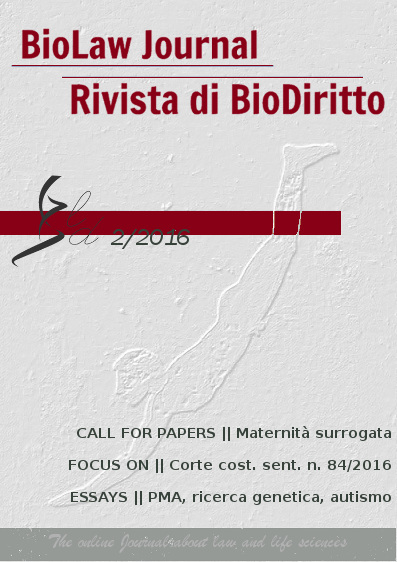Il diritto e l’embrione come soggetto di narrazioni
DOI:
https://doi.org/10.15168/2284-4503-162Parole chiave:
Biolaw, Legal status of embryo, biopolitcs and bioethics, “case narrativesâ€, balancing test, intergenerational solidarityAbstract
Starting from the assumption that biopolitics and bioethics are built on “case narratives”, the article traces the main and opposing “narratives” on the legal status of the embryo, which, for some, is a subject of rights, to be balanced with those of others who are already fully formed persons, while for others, it is living matter whose dignity is to be safeguarded, albeit as entities without personality. We briefly comment the ECHR judgment Parrillo v. Italy and the Italian Constitutional Court’s decision nr. 84/2016 in the light of the idea that scientific experimentation on embryos that have not been specifically produced, but are already existing and cryopreserved though not implantable and not “adopted for birth”, could be legitimised (because they would in any case be destroyed as things), understanding their dignity in terms of the benefits they bring, from a perspective of intergenerational solidarity.





